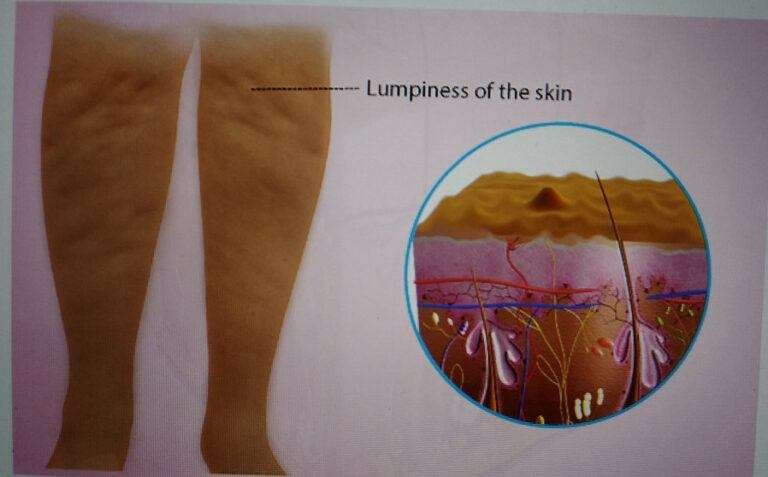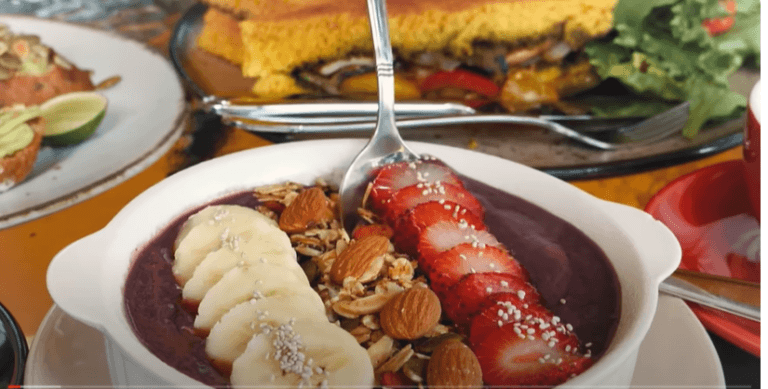The Truth About Sugar – How to Mitigate Cravings
I’m going to kick things off by setting the stage: sugar, that granular temptress we all know too well. It’s not just about satisfying your sweet tooth; it’s also about understanding where it sneaks into our diets. From your morning cup of coffee to that sneaky midnight snack, sugar is virtually everywhere. Let’s find out the truth about sugar. 
The Truth About Sugar
Now what exactly are we dealing with here? There are natural sugars, like those found in fruits and honey, and then there are added sugars, the kind manufacturers put into just about everything. And I mean everything – breads, sauces, even so-called ‘healthy’ snacks. So, what is the truth about sugar?
You’re going to find out about the journey of sugar consumption through history, from a luxurious commodity to a commonplace pantry item. Sugar wasn’t always in every household; it paved its own way into our diets and, unfortunately, our health issues.
We’re not just talking about gaining a couple of extra pounds; sugar’s effects run much deeper. It messes with our metabolism in ways many of us aren’t even aware of. And those myths about sugar? Like ‘natural sugars are better for you’ or ‘just burn it off with exercise’? I’ll be debunking those, too.
This isn’t just an exploration; it’s a revelation. As we peel back the layers, the effects of sugar on our body become glaringly apparent, fostering a crucial understanding of how this sweet culprit operates beneath the radar. But understanding is just the beginning. Next, we’ll dive into the nitty-gritty effects of sugar on your system, and trust me, it’s more intricate than you might think.
How Sugar Affects Your System
In my opinion, understanding the way sugar impacts your system is critical if you’re looking to maintain or improve your health. You’re going to find out about the key metabolic disruptions linked to sugar intake and why it’s a far-reaching concern.
Guess what? The link between sugar and insulin resistance is a major factor in the development of type 2 diabetes. Consistent high sugar consumption can lead your cells to become less sensitive to insulin, hindering blood sugar regulation. This isn’t just about diabetes; it also sets the stage for a domino effect of health issues.
A lot is happening very quickly when we consume sugar in excessive amounts. One of the immediates is weight gain. Sugar, especially in the form of high-fructose corn syrup, is often  leading to unintentional overconsumption and thus, increased body fat.
leading to unintentional overconsumption and thus, increased body fat.
Then there’s the connection to inflammation and chronic diseases. Sugar fuels inflammation, and chronic inflammation is a known culprit in a host of diseases, from arthritis to heart disease. And it’s not just physical—sugar’s impact on mood and cognition is also significant, as it can cause energy spikes followed by crashes.
The Impact of Sugar on Insulin Resistance
In the quest for better health, understanding the relationship between sugar intake and insulin resistance is pivotal. Insulin resistance, a condition affecting potentially one-third of Americans, occurs when cells in muscles, fat, and liver struggle to respond to insulin and properly utilize glucose from blood for energy.
This imbalance prompts the pancreas to produce more insulin, leading to elevated blood sugar levels over time.
As a result, there are things to look out for such as increasing the risk of :
- Obesity
- High blood pressure
- High cholesterol
- Type 2 diabetes, collectively known as metabolic syndrome.
The Role of Sugar in Insulin Resistance
The journey to insulin resistance often begins with excessive sugar consumption. When we eat too much sugar, our blood sugar levels spike, necessitating an increased insulin output from the pancreas to help cells absorb glucose.
Continuously high levels of sugar intake can lead to cells becoming less responsive to insulin, a state known as insulin resistance. Remarkably, limiting added sugar to less than 5% of total caloric intake can halve the risk of developing prediabetes and type 2 diabetes (T2D), highlighting the critical role of diet in managing blood sugar levels.
The Consequences of Insulin Resistance
Insulin resistance is not just a standalone issue; it’s a gateway to numerous health problems. Without visible symptoms, it often goes unnoticed until significant health issues arise.
Indicators of this condition include the following:
- Waistline over 40 inches for men and 35 inches for women
- Blood pressure of 130/80 or higher
- Fasting glucose levels above 100 mg/dL, among others.
These signs underscore the silent progression of insulin resistance towards more severe conditions.
Lifestyle Factors Contributing to Insulin Resistance
Key lifestyle factors exacerbate the risk of insulin resistance, notably excessive body fat around the abdomen and a sedentary lifestyle. Diets high in carbohydrates, certain health conditions (like nonalcoholic fatty liver disease and polycystic ovary syndrome), genetics, smoking, and even certain ethnic backgrounds also play a significant role. Age increases the risk, particularly after 45, as does the presence of hormonal disorders or the use of specific medications. 
Strategies to Combat Insulin Resistance
The progression from insulin resistance to type 2 diabetes is not inevitable. Lifestyle adjustments, particularly in diet and physical activity, can significantly mitigate this risk.
Foundational Steps to Reverse Insulin Resistance
Adopting a healthy lifestyle is a key component to reverse insulin resistance.
Here are steps to help you out:
- Regular exercise
- Maintaining a healthy weight
- A balanced diet rich in fruits, vegetables, whole grains, and lean proteins
These are three major foundational steps in reversing insulin resistance. In some cases, medications like metformin may be recommended to help manage blood sugar levels.
Effective Sugar Replacements
Now, you’re probably thinking about the sugar lurking in your pantry. And you’re right to wonder if there are better alternatives. So let’s talk about how you can sweeten your life without the sugar crash.
First off, you should know there’s a variety of sugar replacements out there, and they’re not all created equal. We’ve got natural sweeteners like honey, maple syrup, and agave nectar. There’s also a whole lineup of sugar alcohols like xylitol and erythritol. And don’t forget stevia, a plant-based powerhouse that’s gaining popularity.
Natural doesn’t always mean better for you or lower in calories. But it’s not just about calorie counting— it’s about how these sugars affect your blood sugar levels. That’s where the glycemic index comes in, a measure of how fast your body converts food into glucose. The lower the number, the less impact on your blood sugar levels.
Navigating the world of sugar alternatives can be tricky, especially with hidden sugars in processed foods. That’s why it’s crucial to become a label detective. Peek at the ingredients list for anything ending in ‘ose,’ like fructose or sucrose, and be skeptical of ‘healthy’ marketing on packaging.
So, if you want to make a switch, choose something that resonates with you—something that fits your health goals, dietary needs, and, yes, taste preferences. Whether you’re baking a cake or sweetening your coffee, there are options out there. You’ll find that a little research will go a long way in making those healthier choices.
Here’s one of my favs in terms of snacks. Try Navitas Organics out and let me know your feelings about this product okay? [lasso id=”12082″ link_id=”881″ ref=”amzn-navitas-organics-superfood-power-snacks-cacao-goji-8-oz-bag-11-servings-organic-non-gmo-gluten-free”]
How to Mitigate Sweet Cravings
I’m going to level with you: cutting down on sugar might seem like a daunting task at first, especially when those sweet cravings hit. But you’re not alone on this journey. I’m here to help you with practical steps to reduce sugar consumption while still enjoying the flavors you love. 
Nourish Your Body With Nutritious Foods
Choose something that resonates with you, like incorporating more whole foods into your diet. This isn’t just about cutting out sugar; it’s also about nourishing your body with foods that can help tame those cravings naturally. Foods rich in fiber, protein, and healthy fats can keep you feeling satisfied and less likely to reach for sugary snacks.
Embrace Mindfulness
Mindful eating is crucial. Don’t worry too much about the occasional treat, but pay attention to what you eat and why. Are you really hungry, or are you bored, stressed, or thirsty? Taking a moment to assess your hunger levels can be a game-changer.
Implement Sugar Replacements
Now, implementing sugar replacements might seem tricky, but once you start exploring, you’ll find plenty of recipes and alternatives that can help sweeten your life without the sugar rush. From drinks to desserts, get creative in the kitchen.
Remember, your first attempt doesn’t need to be your last. You can always adjust your approach down the road. Try different methods until you find what works best for you and your lifestyle.
Investing in Long-Term Health Benefits
In my opinion, the long-term health benefits of reducing sugar are nothing short of incredible. From improved energy levels to a lower risk of chronic diseases, the advantages carry substantial weight. When you commit to making healthier choices, you’re not just investing in your current self—you’re also investing in your future well-being.
So my question to you today is, what’s going to be your first step towards a reduced-sugar lifestyle? Start small, stay consistent, and trust that you’re making a positive change for your health. I really hope that this article has empowered you to look at sugar differently and given you the tools to embrace a sweeter life—naturally. 
Final Take Home
Insulin resistance represents a critical junction in metabolic health, where choices made in diet and lifestyle can profoundly affect long-term well-being. The evidence is clear: reducing sugar intake, alongside exercising, and eating healthily, can improve insulin sensitivity and stave off the progression to type 2 diabetes.
While insulin resistance may be silent, its impact is far-reaching, affecting every aspect of metabolic health. By adopting healthier lifestyle choices, individuals can significantly reduce their risk and enhance their quality of life. Awareness and proactive management are key to combating the rising tide of metabolic syndrome and its associated complications.
Founder, Rachele
(w) mybluegenes.com






